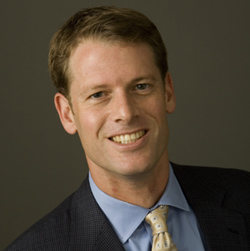Alumni Spotlight: Daryl G. Press

Degree: PhD in Political Science, 2001
Dissertation: “What Causes Credibility? Reputation, Power and Assessments of Credibility During Crises.”
Current Position: Associate Professor of Government, Department of Government, Dartmouth College
Recent Publications: "The End of MAD? The Nuclear Dimension of U.S. Primacy," International Security , Vol. 30, No. 4, Spring 2006, with Keir Lieber.
"The Rise of U.S. Nuclear Primacy," Foreign Affairs, March/April 2006, with Keir Lieber.
"Calculating Credibility: How Leaders Assess Military Threats," Cornell Studies in Security Affairs (Ithaca: Cornell University Press, 2005).
“The Effects of Wars on Neutral Countries: Why It Doesn't Pay to Preserve the Peace,” Security Studies vol. 10, 2002, with Eugene Gholz.
On 23 April 2008, SSP interviewed alumnus Daryl Press. Daryl's research projects at Dartmouth College include a study of economic globalization and an exploration of the relationships between nuclear weapons and U.S. primacy. He teaches courses on international politics, nuclear weapons, U.S. foreign policy, and military statecraft in international politics.
1. Your economic globalization project, and specifically your 2002 Security Studies article with Eugene Gholz, posits that globalization actually makes western economies less vulnerable to distant economic disruptions, not more vulnerable as is often supposed. What brings you to this conclusion?
Eugene and I argue that although globalization has created a dense economic web between countries, the web reduces countries' vulnerability to overseas shocks. The whole point of a web is that the structure can survive even if a few individual strands are severed. This is particularly true of the global economic web, because profit-seeking actors respond eagerly to disruptions by searching for “next best” alternative. To put it differently: economic globalization has led to the global proliferation of economic alternatives: alternative suppliers of the goods we consume, alternative consumers for the products we manufacture, alternative locations for us to invest, and alternative sources of capital for our firms. The United States is growing increasingly dependent on access to the global economy as a whole, but less dependent on any specific economic relationships within the global economy.
2. Your PhD dissertation and your 2005 book find that at the beginning of World War II and during the cold war, decision makers assessing an adversary's credibility attached more importance to information about that adversary's national interests and relative military power than to the other country's reputation as unflinching in facing a crisis. How might that finding apply to today's policy debates about leaving Iraq?
A military withdrawal from Iraq would not be particularly damaging to U.S. credibility. When leaders face a key decision, they evaluate their adversaries' and allies' credibility by weighing the interests at stake for each party, and the capabilities each side brings to the table. Leaders usually make a simple and wise calculation: they assume that countries will defend their interests if they have the power to do so.
What this means is that if we withdraw from Iraq, we must explain very clearly what our key interests are in the region, and that we have more than enough military capability to defend those interests. America's two key interests in the Gulf are ensuring the free flow of oil and preventing the conquest of any of the region's major producers. Our naval and air forces are more than sufficient for those objectives. It would be foolhardy for any enemy to conclude that because we are bad at counter-insurgency and nation building, we are unable to protect important energy interests in the Gulf. I am confident that the United States can articulate this message in a very persuasive fashion, even if we leave Iraq .
3. As is often the case for SSP alums, when you finished your dissertation you had an important choice to make between a position in the policy world and an academic career. What inclined you toward the academic option? Do you have any advice to share with current SSP students as they weigh their career choices?
To be honest, I don't have much advice to help people choose between a career in policy or academia. The factors that would make someone choose one over the other are so varied and idiosyncratic. Both career paths can be very rewarding. What I would say for someone who wants an academic career is this: you don't need to land your dream job initially to have a great career. In an ideal world your first job will be in a leading department and you'll have outstanding colleagues. But all you really need in a first job is a place that will protect your time (i.e., it has a reasonable teaching load) so that you can produce as much high-quality research as possible in six years. The work you do in those early years as an assistant professor will be crucial for setting your career trajectory, and you can do that work anywhere that gives you time to focus on your research.
4. You have been teaching and conducting research at the university level since 1999. In retrospect, which SSP experiences do you think were helpful in preparing you for your current work?
My experiences at SSP have shaped every aspect of my career. The ethos at SSP – that we should all study important real-world problems – has shaped my research interests since graduate school. The training I received in graduate school in conventional and nuclear force analysis made it possible for me to study some of the questions that grabbed my attention. And my years at SSP left me with an invaluable network of friends; I rely on them frequently. There is no substitute for having people whom I've known for decades, and who will unflinchingly point out the errors in my work so I can address them before they see the light of day. SSP gave me the opportunity to build professional relationships with people who are now in varied positions across academia and the policy world – and it has been invaluable to me.

